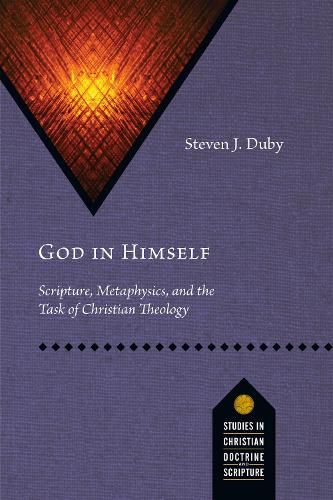Readings Newsletter
Become a Readings Member to make your shopping experience even easier.
Sign in or sign up for free!
You’re not far away from qualifying for FREE standard shipping within Australia
You’ve qualified for FREE standard shipping within Australia
The cart is loading…






How do we know God? Can we know God as he is in himself? These longstanding questions have been addressed by Christian theologians throughout the church’s history. Some, such as Thomas Aquinas, have argued that we know God through both natural and supernatural revelation, while others, especially Karl Barth, have argued that we know God only on the basis of the incarnation. Contemporary discussions of these issues sometimes give the impression that we have to choose between a speculative doctrine of God driven by natural theology or metaphysics and a Christ-centered doctrine of God driven by God’s work in the history of salvation.
In this volume in IVP Academic’s Studies in Christian Doctrine and Scripture series, Steven J. Duby casts a vision for integrating natural theology, the incarnation, and metaphysics in a Christian description of God in himself.
$9.00 standard shipping within Australia
FREE standard shipping within Australia for orders over $100.00
Express & International shipping calculated at checkout
How do we know God? Can we know God as he is in himself? These longstanding questions have been addressed by Christian theologians throughout the church’s history. Some, such as Thomas Aquinas, have argued that we know God through both natural and supernatural revelation, while others, especially Karl Barth, have argued that we know God only on the basis of the incarnation. Contemporary discussions of these issues sometimes give the impression that we have to choose between a speculative doctrine of God driven by natural theology or metaphysics and a Christ-centered doctrine of God driven by God’s work in the history of salvation.
In this volume in IVP Academic’s Studies in Christian Doctrine and Scripture series, Steven J. Duby casts a vision for integrating natural theology, the incarnation, and metaphysics in a Christian description of God in himself.